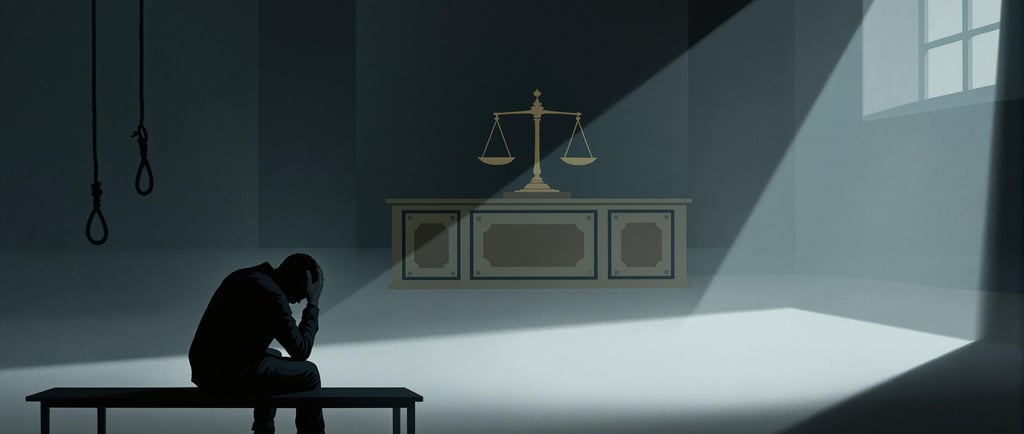The Atul Subhash Case: What It Reveals About Justice and Relationships
This article delves into the tragic Atul Subhash case, shedding light on the flaws in India’s justice system and the deeper issues of trust and communication in relationships. A thought-provoking read on justice, relationships, and the lessons we can learn to prevent such tragedies.
12/18/20243 min read


The Atul Subhash case is a tragic story that has left many people questioning not only the flaws in India’s justice system but also the way we approach relationships and marriage. It’s a reminder of how misunderstandings, lack of trust, and poor communication can lead to devastating consequences—not just for the individuals involved but for their families and communities as well.
While the case highlights the need for reforms in the justice system, it also raises an important question: how can we prevent such tragedies from happening in the first place? The answer may lie in something as simple as better preparation and communication before making life-changing commitments.
The Case That Shocked Many
The Atul Subhash case revolves around a young couple whose relationship took a dark turn, leading to allegations of betrayal, emotional turmoil, and ultimately, a tragic loss. It’s a painful example of how unresolved issues and misunderstandings can spiral out of control.
The case also exposed the inefficiencies of the Indian justice system. Delayed investigations, mishandled evidence, and the slow pace of trials are all too common. For the families involved, this often means years of waiting for justice, with little closure in sight.
The Justice System’s Shortcomings
In India, cases involving personal relationships—whether it’s domestic violence, dowry disputes, or marital conflicts—are often complicated by societal biases. Victims are sometimes blamed, and the legal process can feel more punishing than protective. The Atul Subhash case is a stark reminder of how the system can fail those who need it most.
But beyond the justice system, this case also highlights the importance of addressing issues at their root. Many such tragedies begin with unresolved conflicts in relationships, which could potentially be avoided with better communication and understanding.
The Role of Communication in Relationships
At the heart of the Atul Subhash case is a breakdown in trust and communication. Relationships are not just about love and commitment—they require honesty, mutual respect, and a willingness to address difficult topics. When these elements are missing, small issues can grow into major conflicts.
In India, where many marriages are arranged or rushed, couples often don’t get the chance to truly know each other before tying the knot. This lack of understanding can lead to unrealistic expectations, hidden frustrations, and, in some cases, tragic outcomes. The Atul Subhash case is a painful reminder of what can happen when these gaps are left unaddressed.
A Subtle Case for Pre-Marital Consultation
While the justice system needs urgent reform, the Atul Subhash case also points to the importance of preparation in relationships. This is where the idea of pre-marital consultation comes in—not as a solution to all problems, but as a way to build stronger foundations for marriage.
Pre-marital consultation is about having honest conversations before making a lifelong commitment. It’s an opportunity for couples to discuss their values, expectations, and potential challenges. By addressing these topics early on, couples can avoid misunderstandings and build a relationship based on trust and mutual respect.
In the context of the Atul Subhash case, one can’t help but wonder: could things have been different if there had been more open communication from the start? While we can’t change the past, we can learn from it and take steps to ensure healthier relationships in the future.
What We Can Learn
The Atul Subhash case is a wake-up call on many levels. It highlights the urgent need for a faster, fairer justice system. But it also reminds us of the importance of communication and preparation in relationships.
By taking the time to truly understand our partners—through open conversations or even pre-marital consultations—we can reduce the chances of misunderstandings and conflicts. A strong relationship is built on trust, respect, and a willingness to work through challenges together.
As we reflect on the lessons from this case, let’s strive for a future where both our justice system and our relationships are stronger, more supportive, and better prepared to handle life’s challenges.
